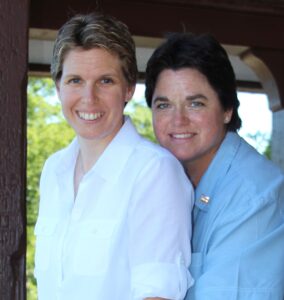This article first appeared in the February 2021 issue of Modern Military Magazine. Read the original article here.
I am an Air Force brat, an Air Force Veteran of 21 years, an Air Force spouse of seven years, and I even did one year as an Air Force civilian. With the trials and tribulations associated with any of those categories, I can honestly say resilience is a way of life for me.
However, it was as a spouse that I was introduced to the “formal” version or definition of resilience. I attended a spouse-specific workshop and was taught so many new methods, I signed up for and was certified as a Master Resilience Trainer (MRT). Over the course of the last five years, I’ve taught spouses, first-term Airmen, and even family members new resilience skills.
Before you roll your eyes and move away from yet ANOTHER resilience discussion, I ask you to pause and answer this honestly: Have you been struggling a little more than usual with mood swings, negative self-talk, or even boredom? If so, you are not alone.

The author (right) and her wife
Winter months are hard to navigate any year, but it is especially difficult when coupled with a country violently divided on just about every issue, and a global pandemic that means lack of travel, kids schooled at home, teleworking, and sickness or death to loved ones. Resilience practices are paramount now more than ever.
Resilience is the ability to be flexible, bounce back, or adjust to the stresses in our lives. It does not mean you “force” the smiles or happiness. It means you are aware of stressors, take appropriate steps at the appropriate time to deal with those stressors, and therefore “bounce back” to where you were — or better. I would argue the LGBTQ+ community has a strong resiliency baseline. We’ve had to navigate tough challenges personally and professionally to stay positive through the negativity and hate we’ve experienced. However, it’s prudent to increase your resilience posture and enhance your personal resilience toolkit. So, how can we navigate through tough times like these?
Reframe negative thinking
Negative thinking is a self-defense mechanism. Our ancestors were constantly scanning the horizon for danger. “Which berries are bad?” was a life-or-death question to them, though it’s now as outdated as dial-up internet.
The legacy of negativity bias can be overcome once we recognize it and take actions to counteract it. Studies show practicing gratitude helps against that negativity bias. Simply naming a few things each day that you’re grateful for can bolster your ability to withstand more intense hardships down the road. What you are thankful for needn’t be grandiose; it can be as modest as, “I’m thankful for this cup of coffee!”
A more advanced approach is putting a positive spin on a challenge such as, “It sucks I need oral surgery to replace a tooth, but I am so grateful for the talent and technology available to restore my teeth.” Learning to turn negative situations into a positive in your daily life will give you extra strength when life really throws a zinger at you…you know, like a global pandemic.
Permission to feel
Speaking of a global pandemic, it is easy to fall into the “but others have it worse” trap. We hear stories of the grief, loss, and loneliness others are experiencing that seem more dire than our situations, but grief, loss, loneliness, and other feelings are not distributed in a pie. If you take a piece, it does not leave less for others. These things are not finite, and you are allowed — and should — feel what you feel.
Repressing those feelings doesn’t make you more resilient; it can actually exacerbate a negative mood. So give yourself permission to feel, without judgement. You’ll be amazed at how liberating it is to allow yourself the time to process your feelings.
Take YOU time
More time with family can be a love/hate proposition. Teleworking and school closures give you more family time but may cause increased stress in your relationship. For some, this increased togetherness is a blessing, but others may be overwhelmed and unsure how to communicate that to their partner.
It’s important to discuss what the increased time together means and how to navigate it. It’s especially important to take “you” time. Let your partner know that your need for space or solitude does not diminish your love for them, but that you need time for self-care. When your needs are met, it’s easier to feel resilient and be the best version of yourself for your loved ones. Communication, honesty, and compassion are key during increased togetherness.
Ask for help
It’s okay to feel off every now and again. There is no standard depth or length of time one may struggle, but know when it’s too much! It is important to check in with yourself and be honest. There is no shame or weakness in talking to a professional. In fact, I think obtaining mental health care takes more courage than trying to tough it out alone.
We can all help destigmatize seeking mental health resources by encouraging others to seek help and acknowledge when we’ve benefited from mental health services. I have, several times! There’s no need to suffer in silence.
Try something new
As we cope with COVID, lockdowns, and winter blues, consider trying something new that can help you feel more resilient and pass the time in a healthy way. You may even find something to serve you throughout your life, not just during the pandemic. Some ideas include:
- Mindfulness: Mindfulness is not sitting on the floor, legs crossed and chanting (that is more associated with meditation). Mindfulness can help you to become more aware of your thoughts, emotions, and actions so you become more intentional about your behaviors. Mindfulness helps us come off autopilot and be more aware of our emotions and how we react. It’s about getting comfortable with being uncomfortable. There are many ways to practice, including guided reflection and breathing techniques you can find online or in apps.
- Yoga: There are a broad variety of yoga schools, philosophies and goals. Do the research to find what targets your specific desire, i.e. relaxation, strength training, pain management, etc.
- Online learning: Many schools and companies are offering free online classes right now. This is a great opportunity to learn something you’ve always been interested in but didn’t want to pay tuition for.
- Learn a new hobby or craft: There are a variety of online how-to options that teach crafting. This is something you could have fun doing with a partner or kids, and the possibilities are endless, from developing your baking skills to learning how to knit.
Oldies but goodies
Sometimes, it’s comforting to stick to traditional practices. Reinvigorate things that bring you comfort and remind you of simpler times. For example:
- Start an exercise program either alone or with family. Family outings on bicycles or walks through the park provide a healthy break for everyone.
- Write a letter to a friend or family member by hand, with pen, on paper. This extra effort will show how important the relationship is, it will give them a great surprise, and the recipient will cherish the letter for years to come.
- Create a vision board. Gather up all those old magazines, catalogs, or advertising circulars and start defining your goals. A vision board gives you a pictorial account of your goals and dreams. This is another great family activity.
- Start a puzzle, put on some tunes, and tune out the world. No explanation needed.
This is by no means an all-inclusive or official guide to resilience; in fact, I don’t think I even fully scratched the surface. If you want to learn more, there’s plenty more information available on resiliency online, in books, and through the military.
As we navigate these worrisome times, I hope you find something or someone that lifts you up. Feel what you need to feel, look for the positive, find something old or sometime new to inspire, and remember that you are not alone!
Laurie Conrad is a retired USAF Aircraft Maintenance Officer having served in Korea, Qatar, Italy, Afghanistan, and more than six stateside bases. She is now a proud AF spouse with the Special Operations Wing at RAF Mildenhall, United Kingdom where she advocates and supports resilience programs for spouses and families.


